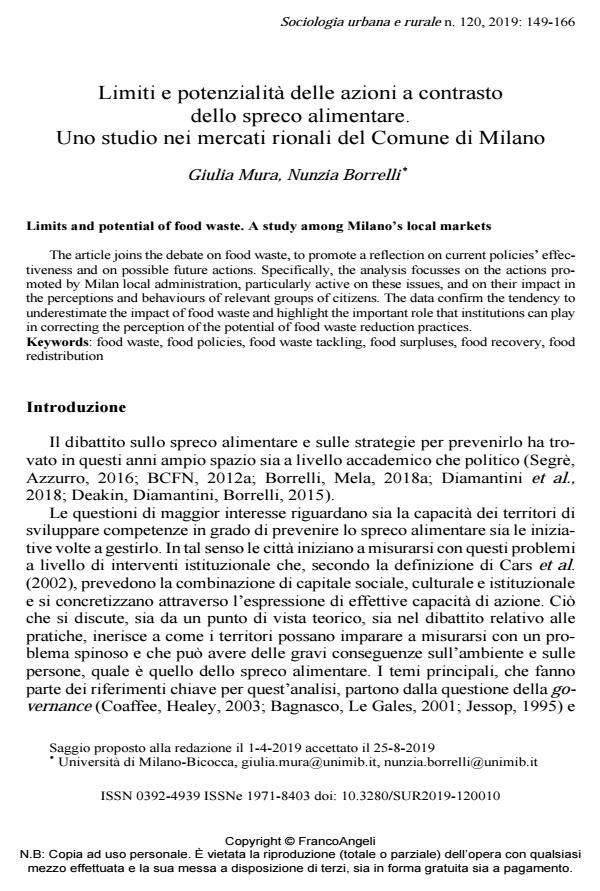Limits and potential of food waste. A study among Milano’s local markets
Journal title SOCIOLOGIA URBANA E RURALE
Author/s Giulia Mura, Nunzia Borrelli
Publishing Year 2019 Issue 2019/120
Language Italian Pages 18 P. 149-166 File size 230 KB
DOI 10.3280/SUR2019-120010
DOI is like a bar code for intellectual property: to have more infomation
click here
Below, you can see the article first page
If you want to buy this article in PDF format, you can do it, following the instructions to buy download credits

FrancoAngeli is member of Publishers International Linking Association, Inc (PILA), a not-for-profit association which run the CrossRef service enabling links to and from online scholarly content.
The article joins the debate on food waste, to promote a reflection on current policies’ ef-fectiveness and on possible future actions. Specifically, the analysis focusses on the actions promoted by Milan local administration, particularly active on these issues, and on their impact in the perceptions and behaviours of relevant groups of citizens. The data confirm the tendency to underestimate the impact of food waste and highlight the important role that institutions can play in correcting the perception of the potential of food waste reduction practices.
Keywords: Food waste, food policies, food waste tackling, food surpluses, food recovery, food redistribution
- The Palgrave Handbook of Practical Sustainability Michele Filippo Fontefrancesco, pp.541 (ISBN:978-3-031-82856-0)
Giulia Mura, Nunzia Borrelli, Limiti e potenzialità delle azioni a contrasto dello spreco alimentare. Uno studio nei mercati rionali del Comune di Milano in "SOCIOLOGIA URBANA E RURALE" 120/2019, pp 149-166, DOI: 10.3280/SUR2019-120010